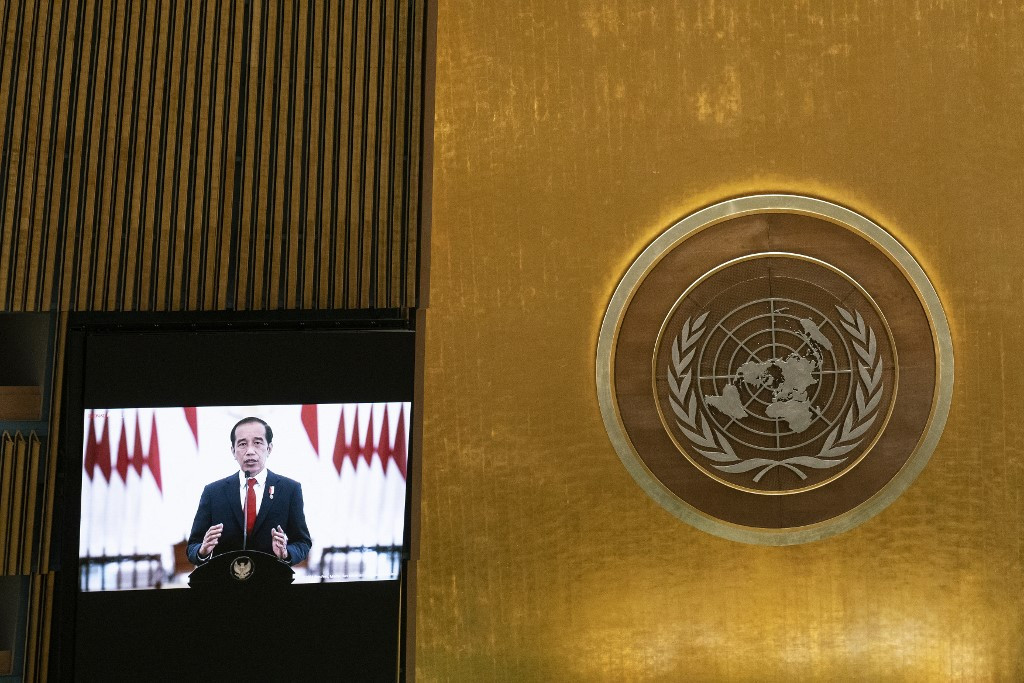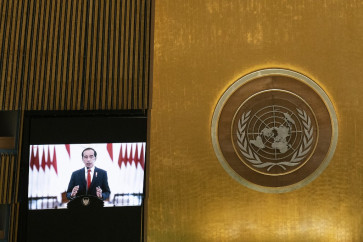Popular Reads
Top Results
Can't find what you're looking for?
View all search resultsPopular Reads
Top Results
Can't find what you're looking for?
View all search resultsWhy Indonesia’s diplomacy fails to impress
Entering the second term of his presidency, Jokowi has no concrete arguments to deal with the dual problems of the economic crisis and the coronavirus pandemic that has hit the whole world, as well as other crucial issues such as Palestine, Myanmar and the South China Sea.
Change text size
Gift Premium Articles
to Anyone
M
y first impression when listening to the prerecorded speech delivered by President Joko “Jokowi” Widodo at the 76th General Assembly of the United Nations (UNGA) recently was that it seemed to be normative, naive and jumping from one global issue to another.
Entering the second term of his presidency, Jokowi lacks concrete arguments to deal with the dual problems of the economic crisis and the coronavirus pandemic that has hit the whole world, as well as other crucial issues such as Palestine, Myanmar and the South China Sea.
We cannot see the common thread of President Jokowi’s speech. We can hardly find, for example, the link between restructuring the architecture of global health resilience with a green and sustainable economy, or effective multilateralism and collective global leadership in contributing to world peace as mandated by the Indonesian 1945 Constitution.
The division and rivalry of great powers that existed even before the COVID-19 pandemic, when the United States changed its foreign policy strategy to agitating China toward Cold War 2.0, have tormented many countries around the world. No part of President Jokowi’s statement addressed this division and rivalry.
As far as the speech was concerned, Jokowi failed to connect the decline of the US superpower, the extraordinary rise of China, and the weakening of international governance and global institutions like the United Nations, the World Trade Organization and the International Monetary Fund.
The current geopolitical conflicts cannot be seen as a revival of last century's feud between the US and the Soviet Union and their respective vassal countries. Today the disputes emerged in the midst of the coronavirus pandemic, which has destroyed the ideology, politics, economy, socio-culture, as well as defense and security of many nation-states around the world. The current development leads to a dangerous environment for anarchy.
Unfortunately, Indonesia's foreign policy is unable to identify discrepancies between the reality of interdependence and the capacity of global governance. We have failed to adequately answer why, despite sharing views on the dynamics and interconnection of the international system, we cannot understand the perceptions, interests and strategies of parties involved in geopolitical tensions.


















